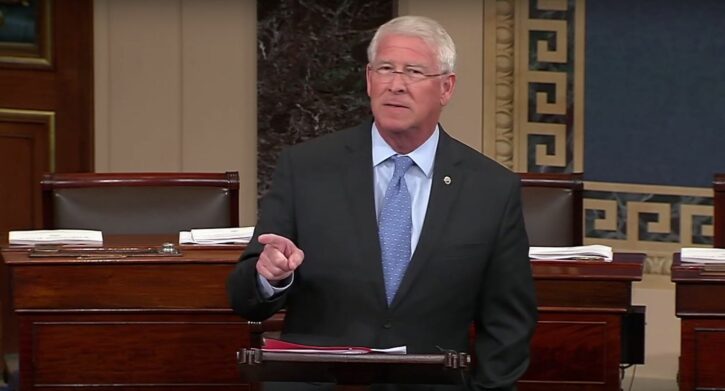
The US engagement in Bosnia and Herzegovina strengthened and directed towards the development of the state into a post-Dayton Peace Agreement state. The Agreement should only be considered as an absolute baseline for further negotiation and only progress should be allowed, said the Helsinki Commission Chairman Senator Roger Wicker in the US Senate.
Wicker said that the Western Balkans region was always of special interest to the US but stressed that Bosnia and Herzegovina should become their particular interest. He recalled his visit to Bosnia, the two of its semi-autonomous entities (The Bosniak-Croat dominated Federation of Bosnia and Herzegovina – FBiH, and the Serb-dominated Republika Srpska – RS) and several cities in Bosnia when he led a bicameral delegation to the country.
“Bosnia was a U.S. foreign policy priority when I came to the House in 1995. In less than a decade, Bosnia had gone from international acclaim while hosting the Winter Olympics to the scene of the worst carnage in human suffering in Europe since World War II,” Wicker said. “The conflict that erupted in Bosnia in 1992 was not internally generated. Rather, Bosnia became the victim of the breakup of Yugoslavia and the extreme nationalist forces this breakup unleashed throughout the region, first and foremost by Serbian leader and war criminal Slobodan Milosevic.”
For that reason, the United States exercised leadership when Europe asked them to, having failed to do so themselves, he added.
“The Clinton administration brokered the Dayton Peace Agreement in November 1995 and enabled NATO to engage in peacemaking and peacekeeping to preserve Bosnia's unity and territorial integrity.”
Further, in his address, Wicker especially stressed the case of Mostar, a city in the South of Bosnia, for which he said it is a spectacular city to visit, but a city that still remains ethnically divided with Bosniak and Croat students separated by ethnicity in schools, even inside the same school buildings. Bosnian citizens, who are of minority groups, such as Jews, Romanis, or of mixed heritage, he said, still cannot run for certain political offices.
“This is 2018. They can't run for State-level Presidency, simply because of their ethnicity. Neither can Bosniaks and Croats in the RS or Serbs in the FBiH run for the Presidency because of their ethnicity, in Europe in 2018,” Wicker stressed.
This is contrary to the rulings by the European Court of Human Rights that this flaw in the Dayton-negotiated Constitution must be corrected.
“This is simply wrong, and it needs to end,” the Chairman told the Senate.
He pointed to the fact that Bosnia and Herzegovina is not making much progress, even as its neighbours join NATO and join the EU or make progress toward their desired integration.
“I suggest that the United States and Europe adopt a policy of imposing sanctions on individual Bosnian officials who are clearly engaged in corruption or who ignore the Dayton parameters, Bosnian law, and court rulings in their work.”
Washington has already imposed sanctions against the RS President Milorad Dodik, and just recently, Nikola Spiric, a member of Bosnia's House of Representatives. However, the scope should be expanded, and European capitals need to join the US in this regard, he stressed.
“Bosnia may not be ready to join NATO, but its Membership Action Plan should be activated without further delay.”
“Let me conclude by asserting that greater engagement is in the interest of the United States: the economic interest and the national security interest. Our adversaries, notably, but not exclusively, Russia, would like nothing more than to make an American effort fail in the end, and they would ensure that its repercussions are felt elsewhere around the globe,” the Senator warned his Senate colleagues.
“Current trends in Bosnia make the country an easier entry point for extremism in Europe, including Islamic extremism. If we wait for discrimination and ethnic tensions to explode again, our engagement will then become a moral imperative at significantly greater cost,” Wicker concluded.



